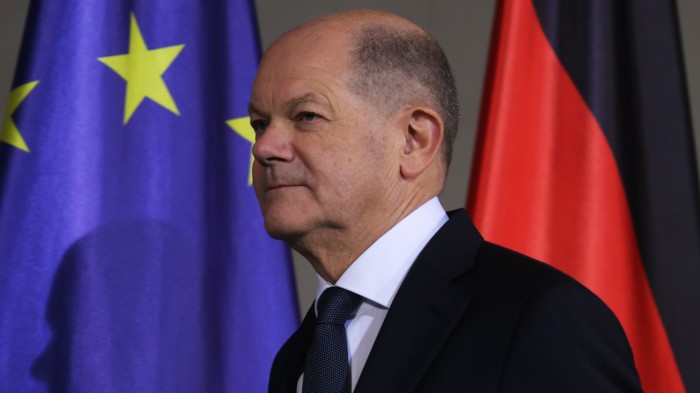Unlock the Editor’s Digest for free
Roula Khalaf, Editor of the FT, selects her favourite stories in this weekly newsletter.
German leader Olaf Scholz is expected to lose a confidence vote in parliament on Monday, a defeat the Social Democratic chancellor is counting on to trigger early elections after calling an end to his three-way coalition last month.
Scholz and his partners, the Greens, no longer command a parliamentary majority since the SPD chancellor sacked his finance minister, the liberal FDP party chief Christian Lindner, on November 6. The ousting followed months of quarrelling over the budget, and came as prospects darken for the eurozone’s largest economy.
“In a democracy, it is the voters who determine the course of future politics,” Scholz said last week.
Under the German constitution, which was designed to prevent government instability after the turmoil of the Weimar Republic in the 1920s and 1930s, the confidence vote — which only the chancellor can request — is the primary mechanism for dissolving parliament and triggering early polls.
The constitutional clause has only been used five times since 1949, three of which resulted in snap elections. While Willy Brandt and Helmut Kohl both went on to win the subsequent elections and remain chancellors, Gerhard Schröder lost to Angela Merkel in 2005.
The only twist in the otherwise predictable procedure set for Monday is that a few MPs from the far-right AfD party have said they would tactically vote in support of the chancellor.
They hope to delay general elections and the likely victory of centre-right CDU candidate Friedrich Merz, the frontrunner in the polls. Merz wants to deliver long-range missiles to Ukraine — a measure the AfD opposes.
Once Scholz has lost the confidence vote, Germany’s president and head of state, Frank-Walter Steinmeier, will be able to confirm the pre-agreed date for new elections of February 23, formally kicking off the campaign.
German voters will head to the polls in the middle of winter as the country faces a stagnating economy and the threat of US trade tariffs following Donald Trump’s return to the White House.
Other divisive electoral themes include whether to deliver more powerful weapons to Ukraine to defend itself against Russia’s aggression, and how to address growing voter anxiety over immigration.
Surveys predict a victory for the CDU, which is polling well ahead of Scholz’s SPD, the Greens and the FDP. However, Merz will most likely need to team up with either the SPD or Greens to form a majority government.
Scholz was ranked as one of Germany’s least popular politicians in an Insa poll last month.
But he is hoping to rekindle his party’s electoral prospects by campaigning on social issues, the need to increase investments in infrastructure, aiding the car industry’s costly transition to electrical vehicles, and promoting a more measured approach to Germany’s support for Ukraine compared with Merz’s proposals.
Read the full article here




